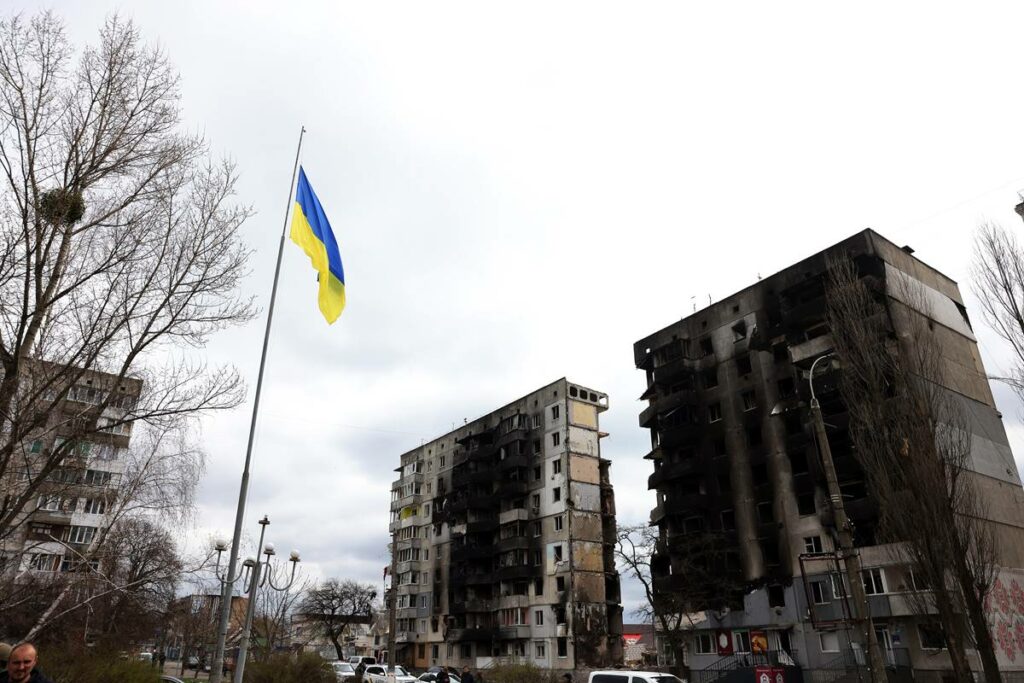Russia’s announcement on Wednesday of a partial mobilization of 300,000 more soldiers for its war in Ukraine has led to an outflux of men in military age trying to leave the country and has been interpreted as a sign that Russia’s “special military operation” is not going as planned.
As already reported, Russian president Vladimir Putin motivated the move as necessary in order to protect people in the Russian-held regions of Ukraine and to defend Russia if its territorial integrity was threatened. Only people in the military reserve will be drafted, he announced, but that can include everyone in military age. His announcement was met by condemnation by the EU and its allies.
In press remarks after his address to the United Nations Security Council on Thursday, EU’s foreign policy chief, High Representative Josep Borrell, said that Russia’s partial mobilisation, the organisation of illegal “referenda” in the Ukrainian territories, and the threats of using weapons of mass destruction continue threatening peace and security - not only in Ukraine but in Europe and elsewhere.
“Now President Putin wants to extend further the cost of war, and also to the Russian population through this partial mobilisation. One thing is clear: Putin wants to destroy Ukraine and he is not succeeding militarily.”
“We know that Putin is being pushed to the corner by the success of the Ukrainian military and their counter-offensive. He is in a very dire situation militarily - that is why he is calling 300,000 reservists and why he is threatening with nuclear weapons. It is certainly a dangerous situation because we do not know what Putin is able to do.”
In the current situation, with no end to the war in Ukraine in sight, the European Council will consider a new package of sanctions against Russia and study the tightening of the economic sanctions targeting more the technological part of EU’s relationship with Russia, he added.
While the High Representative in New York announced EU’s unwavering support to Ukraine, militarily economically and diplomatically, the European Commission in Brussels is still uncertain as to how to handle the influx of Russians fleeing military service and seeking asylum in EU member states.
As part of its response to Russia’s aggression, the EU has already suspended its visa facilitation agreement with Russia, blocking Russians from travelling to the EU on tourist visa. The European Commission issued guidelines on 9 September to support Member States in handling short-stay visa applications lodged by Russian citizens.
The guidelines are restrictive and require strict assessments of security risks and enhanced scrutiny of Russians applying for entry to EU. In principle non-essential travel is deprioritized and the EU is only open to those who need to be protected, like journalists, dissidents, human rights activists, and people travelling for family reasons.
The category of Russians who want to avoid military service and to take refuge in the EU was not foreseen in the guidelines. Does the Commission consider an update of the guidelines in view of the new situation?
At the Commission’s press conferences, its spokespersons have replied that the Commission is in touch with the Member States to assess the situation, show support and prepare the next steps acting in unity. It cannot say how long time this will take. The situation is unprecedented and the Commission says that it needs to take geo-political concerns and security risks into account.
In the meantime, it refers to the present regulatory framework, including its guidelines. All decisions in response to applications for asylum must be taken on an individual basis, taking into account all of the circumstances and the rules laid out in the Common European Asylum System.
Those who participate in the Russian war in Ukraine risks becoming involved in war crimes. If they refuse military service, they risk punishment. Does the Commission consider this is sufficient reason for asylum in the EU?
The issue is being assessed by the Commission and there was no reply to the question at the time of going to press. In a ruling in 2020 (Judgment in Case C-238/19) relating to a Syrian who applied for asylum in Germany, the European Court of Justice concluded that there is a “strong presumption that refusal to perform military service is connected to a reason which may give rise to entitlement to recognition as a refugee.”
M. Apelblat
The Brussels Times

